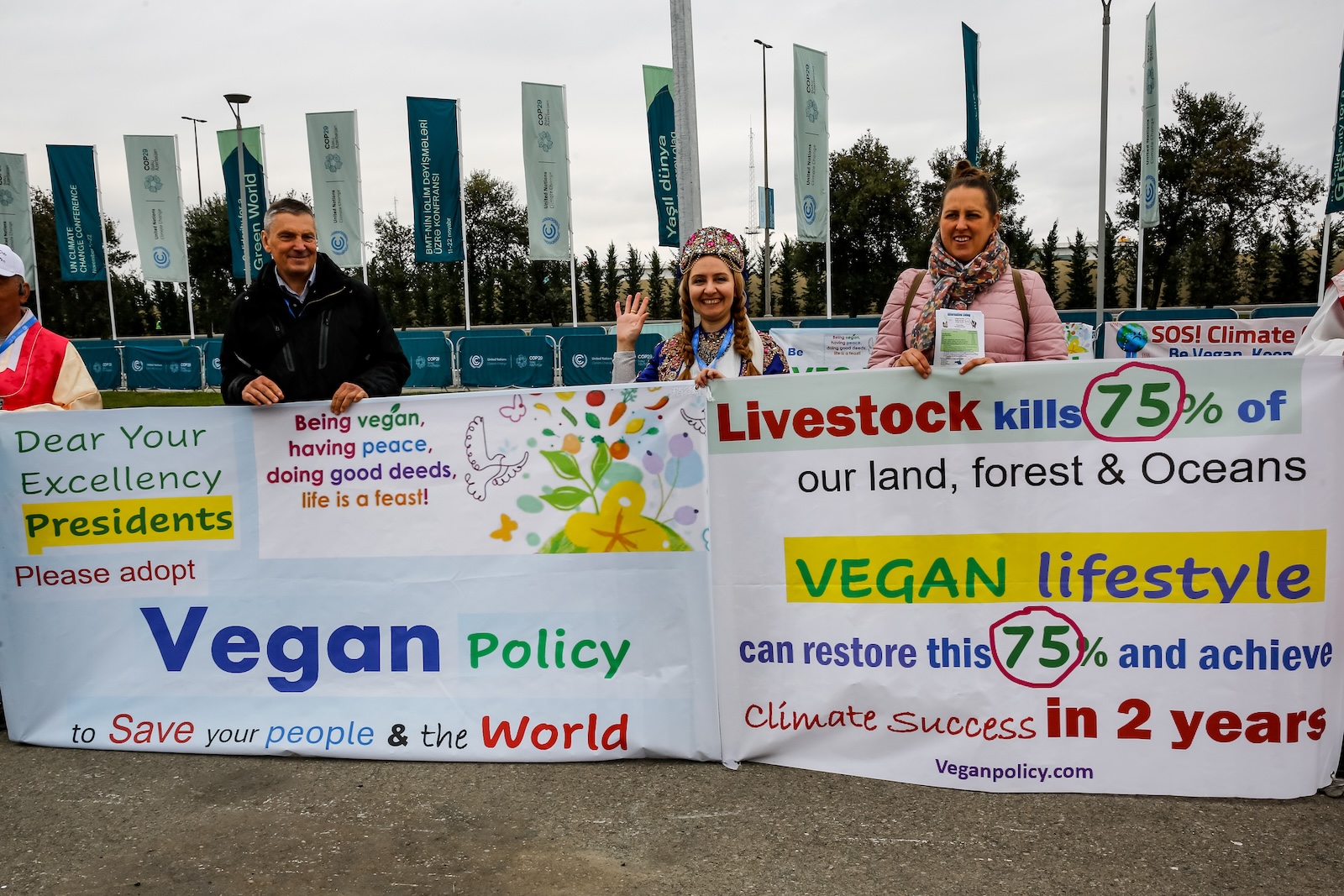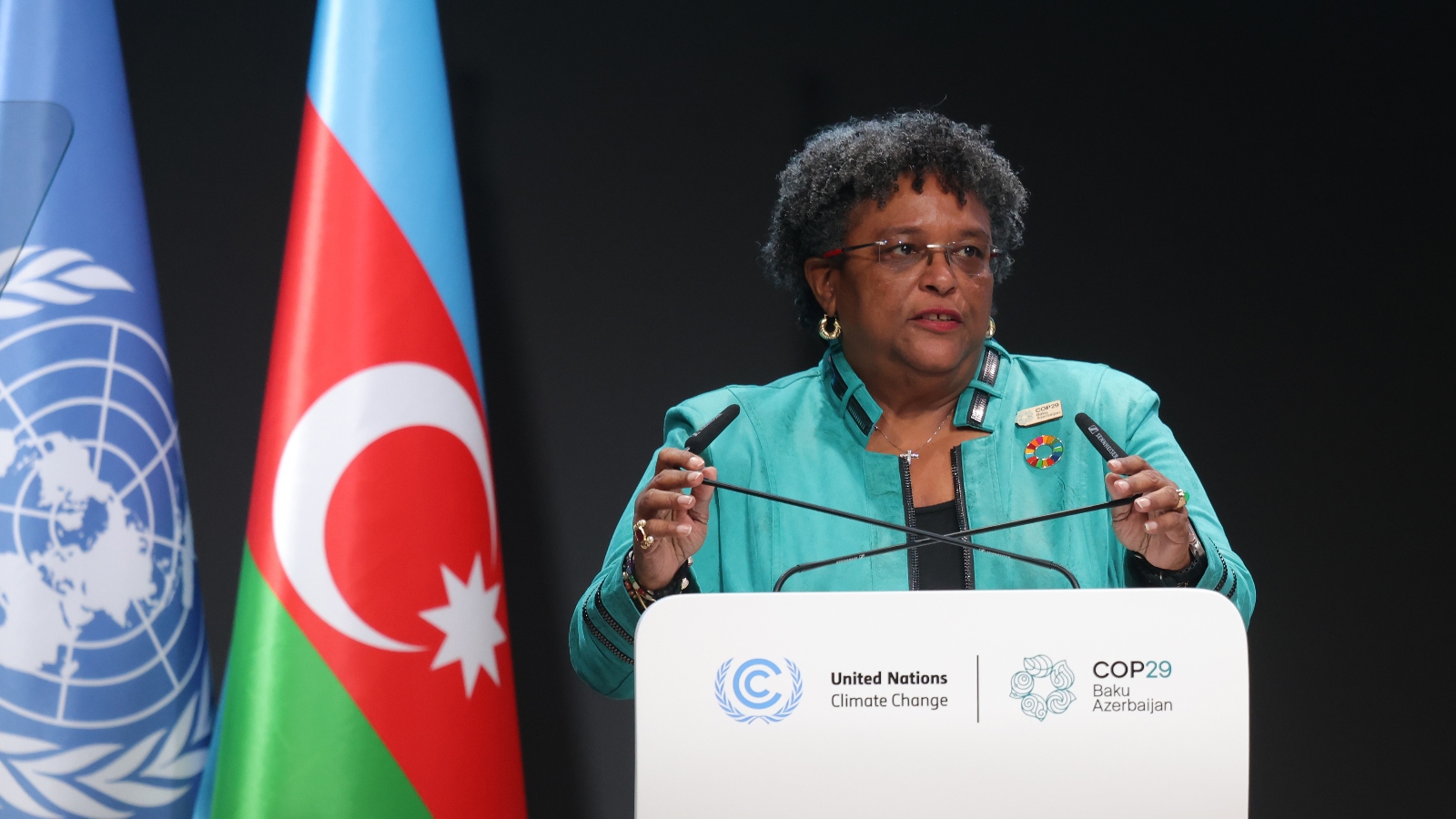Thousands of delegates have congregated in Baku, Azerbaijan, this week for COP29, this year’s United Nations climate summit. Ahead of the conference, experts predicted that food and agriculture would take center stage, thanks to an agenda that included addressing methane emissions from food systems. In attendance are officials leading some of the world’s most influential food policy organizations, including the Food and Agriculture Organization of the United Nations, the World Food Programme, and CGIAR, formerly the Consultative Group on International Agricultural Research.
These specialists prepared for COP29 with high hopes for the agreement that will ultimately come out of the conference. Some are eager to see negotiators funnel more funding commitments into decarbonizing food systems, while others aim to scale up humanitarian aid pledges to tackle global hunger. But as the first week of the summit draws to a close, food policy professionals said the outcome of the latest U.S. presidential election is undermining progress on an issue that has long been neglected at international climate talks.
“Things look very bad for agriculture and agrifood systems,” said Claudia Ringler, director of the natural resources and resilience unit at CGIAR’s International Food Policy Research Institute.
The incoming Trump presidency has “dramatically lowered” her expectations of tangible outcomes related to food systems. “The chance of getting something serious and positive out of [COP29]? Extremely bleak,” said Ringler.
Food systems are responsible for roughly a third of anthropogenic greenhouse gas emissions. Most of these come from livestock: Cattle, sheep, and other ruminants belch methane into the air as they digest food. Methane is 80 to 90 times more powerful than carbon in its first 20 years in the atmosphere. Meanwhile, roughly 733 million people went hungry last year, with the majority living in countries whose economies are dependent on agriculture. The challenge for international policymakers is to find a way to scale down agricultural emissions while also ensuring there’s enough food to feed an increasingly food-insecure global population.
One of the biggest action items expected to come out of COP29 is the regulation of methane. Nearly 160 countries have pledged at least a 30 percent reduction from 2020 methane emissions levels by 2030 — a voluntary agreement that originated in 2021 at COP26 — but most have yet to develop a policy pathway to achieve it. Meanwhile, methane emissions are rising faster than any other greenhouse gas.
But the global initiatives unveiled in Baku so far have focused on reducing methane emissions from oil and gas and landfill sectors — not animal agriculture.
Ringler doesn’t expect that to change by the time the summit wraps next Friday. Even without the backdrop of a fraught political climate in the U.S., negotiations over agricultural emissions have broken down “every single year,” said Ringler, who calls it a recurring “deadlock” over how to strike a balance between climate stabilization and food production.
She also doesn’t expect much out of the Baku Harmoniya Climate Initiative for Farmers, a new effort launched by the COP29 presidency to aggregate farming coalitions and financing networks, which she described as “all just for show.” Many past summit initiatives have failed to translate into real-world action.
“This is so different from the energy system,” said Ringler, who noted that though decarbonizing energy requires a relatively straightforward transition from fossil fuels to renewables, decarbonizing food systems isn’t as simple. Curbing emissions from food systems will require changes to agricultural consumption and production, while also ensuring the parts of the world going hungry have access to enough food. She argues that “the only way to decarbonize the food system is by affecting food production.”
Martin Frick, director of the United Nations World Food Programme’s Berlin office, has been working on these issues for decades and has only just recently seen the climate footprint of food and agriculture start to make its way into closed-door negotiations. Despite high expectations going into the conference, food systems “haven’t been very prominent” on the COP29 agenda, he said.
Still, Frick noted that the recent U.S. election is driving a sense of “urgency” on the ground at Baku that he thinks is prompting accelerated action on other issues that may end up indirectly decarbonizing food systems — namely, highly controversial carbon credit trade rules and a new global aid goal that could, in theory, help lower-income nations transition away from fossil fuels.
The long-term answer to ballooning humanitarian aid needs, Frick said, “cannot be in shifting around large quantities of food around the globe, but should strengthen the capacity of people on the ground to produce their own food.”

SOPA Images / Getty Images
Others consider the diminished U.S. presence at the summit and the conspicuous absence of several big-name world leaders a sign to temper expectations.
Elodie Guillon of the global nonprofit World Animal Protection isn’t hoping for a major announcement or significant funding commitment advancing emissions reductions for food systems. Rather, she is hinging her bets at Baku on getting clarification on existing agreements.
Guillon wants to see “clear guidance” from countries as they update their nationally determined contributions — emissions-reduction benchmarks mandated by the 2015 Paris Agreement — with strong targets for reducing food and agriculture emissions. Beyond that, the summit is mostly “a stone along the path,” she said.
Guillon is looking to the next COP, which will convene next November in Belém, Brazil, to be the real bellwether in financing a just transition to sustainable food systems. Until then, while the impact of the U.S. election is likely to slow some climate progress, said Guillon, “the global food movement won’t stop because of it.”
Stephanie Feldstein, population and sustainability director at the nonprofit Center for Biological Diversity, also noted that while Trump’s reelection might be a “blow at a critical time for climate action, it’s not the end of the story.”
The U.S. is one of the planet’s leading producers and consumers of meat and dairy products. At last year’s COP28, as world leaders signed an agriculture declaration pledge, U.S. Agriculture Secretary Tom Vilsack dodged a question about whether people in nations like the U.S. need to reduce meat consumption to meet climate goals.
Therein lies an unexpected opportunity, said Feldstein. If Trump does end up withdrawing the U.S. from the Paris Agreement a second time, it will sideline the nation in future global convenings, which could open up a path for other countries to prioritize mitigating emissions from animal agriculture.
“Perhaps there’s an opportunity that other countries who are willing to seriously address food and agriculture emissions will be able to do so,” said Feldstein, “and will be able to set the rest of the world on a better trajectory for actually decarbonizing the food system.”






